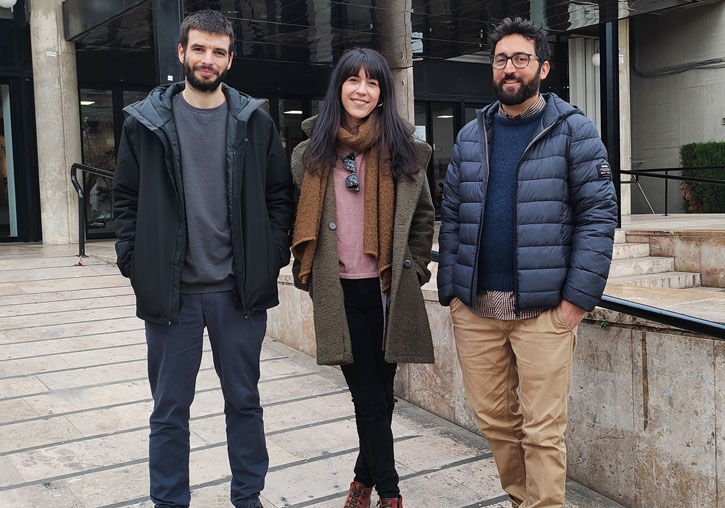
A study in which researchers from the University of Valencia, the Rey Juan Carlos University and the Carlos III Health Institute participate confirms that applying mindfulness techniques – meditation for awareness as a way of accepting the present – in psychotherapy professionals has a positive effect on their patients. The novelty of the study, published in the Psychotherapy journal, is that for the first time it shows the effect of training professionals on their patients.
“For years, mindfulness training has been recommended for mental health professionals to improve their mood and protect them from stress, but the effect this training had on their patients had never been seen. We have verified that the patients whose therapists meditate, improve more and have a better evolution”, highlighted Ausiàs Cebolla, professor of the Department of Personality, Evaluation and Psychological Treatment at the University of Valencia (UV) and one of the signatories of the article published with the results of this research.
This is a controlled study, in which the group of professionals received training in mindfulness while their patients were evaluated through questionnaires, both at the level of symptoms and therapeutic relationship, for 8 weeks. 63 psychotherapists and 121 patients have participated in it.
In order to determine the variables of empathy, the therapeutic bond and the evolution of the patients, different tests were used. Among other findings, the use of mindfulness helps psychotherapy staff to adopt an open and friendly approach to their patients’ experiences, accompanied by a conscious and non-judgmental attitude throughout the sessions.
In addition, it has also been verified that the greater empathy and the improvement of the therapeutic bond are not maintained in the follow-up, which the study considers to be due to the decrease in contact, since many of the psychotherapy treatments ended before the evaluation. “We also found a significant improvement over time in the symptoms (somatisation, depression and anxiety) of the patients in the group with professionals who had practiced mindfulness compared to the group that had not”, the study highlights.
The study also shows that empathy is a desirable characteristic in psychotherapy, which could lead professionals to incur a bias in their own measurement, overestimating their ability to be empathic. With the evaluation of the perception of patients, self-perception can be evaluated.
Methodology
The study has analysed the empathy of the professional after the mindfulness sessions and how this was perceived by his/her patients, as well as the link established between the professional and the user. The symptoms of the patients were assessed with a third test. Of the professionals in the sample, 85.7% were women, and all of them worked in Valencia, aged between 27 and 63 years. On the part of the patients, 80.1% were also women, with pathologies such as anxiety, depression or insomnia, above all. The specialists and their patients were divided into two groups, one in which there were mindfulness sessions, and another in which there were not, and both developed eight sessions with their patients.
Elena Garrote, from the Department of Psychobiology of the UV; Óscar Lecuona, from the Department of Psychology of the Rey Juan Carlos University; Miguel Bellosta, psychotherapist in the Art of Listening and member of the Department of Personality, Evaluation and Psychological Treatment at the UV, plus Ausiàs Cebolla, also a member of the Institute of Cyber-Physiopathology of Obesity and Nutrition at the Carlos III Health Institute have collaborated to elaborate this study.
Regarding the value of mindfulness, various studies have previously pointed out the importance of meditation-oriented therapies and psychotherapy of self-reflection and self-practice, so the researchers of this study suggest that these alternatives should be taken into consideration. and included in university programs.
Article: Garrote-Caparrós E, Lecuona Ó, Bellosta-Batalla M, Moya-Albiol L, Cebolla A. Efficacy of a mindfulness and compassion-based intervention in psychotherapists and their patients: Empathy, symptomatology, and mechanisms of change in a randomized controlled trial. Psychotherapy (Chic). 2022 Dec 8. doi: 10.1037/pst0000467.

.jpg)







